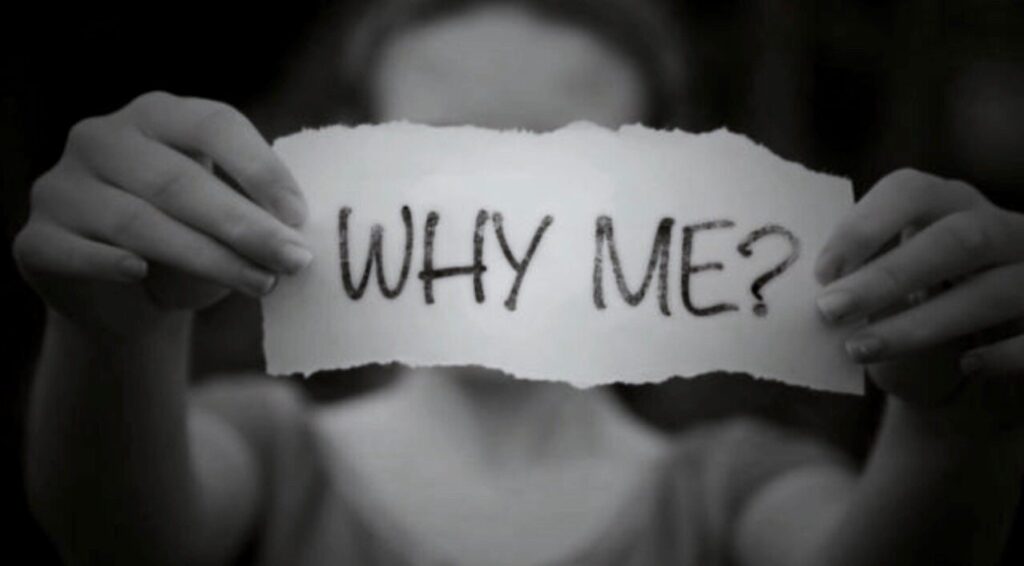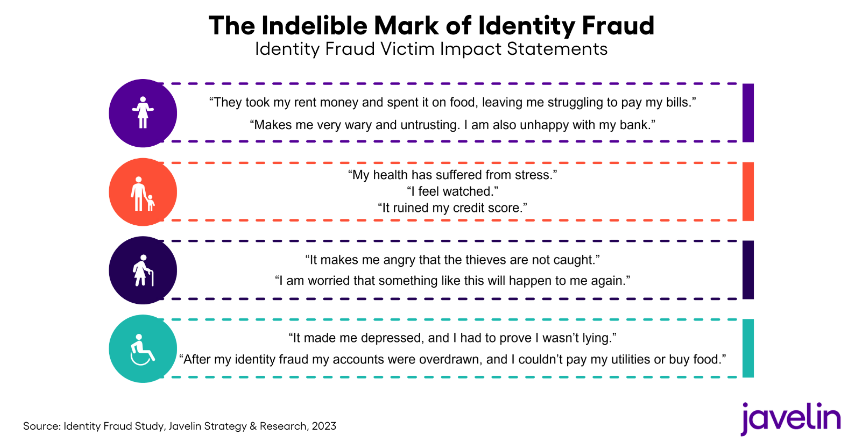
Identity Theft Impact is not just financial – there can be great emotional, mental and physical side effects too.
Let’s take a look at this often overlooked issue…

It’s NOT just you…
Identity Theft is rampant and nearly a third of Americans have been a victim. It’s front and center in the public conscious.
Identity theft is a complicated and personal problem. It is normal for this crime to have an emotional impact on you and your family. Victims of identity theft will feel overwhelmed at times by the psychological pain of loss, helplessness, anger, isolation, betrayal, rage, and even embarrassment. The reality is that people who have not gone through identity theft may not realize the continuous impact of this crime.
You might also have to deal with the fact that someone you know personally was involved in the theft.
A recent study found that:
Eighty-seven percent of surveyed victims report emotional distress on multiple levels, including:
- Feeling worried or anxious (80%)
- Feeling violated (74%)
- Feeling angry (72%)
- Feeling depressed (49%)
The latest analysis also sheds light on the physical toll on identity theft victims. In the wake of identity theft, 68% of respondents also reported physical issues including:
- Sleep problems (92%)
- Stress (88%)
- Headaches and other physical pains (42%)
- Changes in eating and drinking habits (36%)
- Relapses of unhealthy or addictive behaviors (16%)
Symptoms of Emotional Stress
Some victims can lose the ability to function and cope with everyday activities. They may be severely depressed – some symptoms are exhaustion, overeating, anxiety, drinking, forgetfulness, or an unwillingness to leave home or their bed. Don’t wait until you feel lost at the bottom of a pit. Even if you don’t feel overwhelmed, talking to a trained professional who specializes in crime victims can be very helpful.
Be prepared for a roller coaster ride of emotions. Identity theft is a difficult crime to solve. Be patient with yourself and with those who want to help.
- Reactions include shock, disbelief, denial, inappropriate laughter, feeling defiled or dirty, shame or embarrassment.
- Physical and psychological symptoms may include: heart palpitations, chest discomfort, breathing difficulties(i.e., shortness of breath, hyperventilation), dizziness, clumsiness, sweating, hot and cold flashes, elevated blood pressure, feeling jumpy or jittery, shaking, diarrhea, easily fatigued, muscle aches, dry mouth, lump in throat, pallor, heightened sensory awareness, headaches, skin rashes, nausea, sexual dysfunction, sleep disturbance.
- Anger, rage, tearfulness, overwhelming sadness, loss of sense of humor, an inability to concentrate, hyper-protectiveness, and a deep need to withdraw are all part of the psychological reactions to identity theft.
- You may become angry with others, especially loved ones causing family issues. Those who tend to lean on unhealthy habits such as under or overeating, smoking, alcohol or drugs may be drawn to those addictions for comfort.


What Can we Do ?
- Appreciate the value of a support team (family, professional advisors etc) Many victims find that after they explain how they feel and ask for on-going support, their support team is more open to being there through the long haul
- Be consistent and organized. In terms of paperwork, consistence and organization are the key. Keep track of whom you talk with and what needs to be done next. Keep a journal with a calendar of “things to do.” If you can control the process, you will start to feel more on top of the mess. Do this in conjunction with your ID Resolution fraud advocate.
- Don’t forget the rest of your life. Emotionally, at times, it is going to feel like everyone has control of your life but you. You might feel battered and bounced from one person or agency to another in your quest to clear your name. While identity theft seems all-consuming, it is important to acknowledge the other parts of your life that are just fine!
- Embarrassment is a waste of time and energy. Some people become embarrassed at becoming an identity theft victim. They feel ashamed and that they did something wrong or maybe deserved to have this happen to them. No one deserves to be a victim of identity theft.
- Come to terms with the crime. It’s an incredible invasion of our privacy. Like any form of trauma, there isn’t a set time for a victim to be able to move forward after falling prey to an identity thief. The way to move forward, is to accept the challenge that the crime has presented, but recognize the power and ability to move forward.
So What Have We Learnt?
Identity Theft isn’t just a financial issue. It can cause much deeper problems to our wellbeing than the impact on our credit score.
Seek help! Don’t try to carry the burden yourself, talk to family and friends and professional advisors. YOU are not at fault. You’re a victim.
At ID Resolution, we are always here to assist you and guide you through the process. You have unlimited access to our service, USE IT! If it’s beyond our remit, we’ll point you in the right direction.
You’re not on your own.

If you think that Identity Theft is still a vague concept that has only minimal impact, take a look at some Victim Statements from a recent Javelin study…

